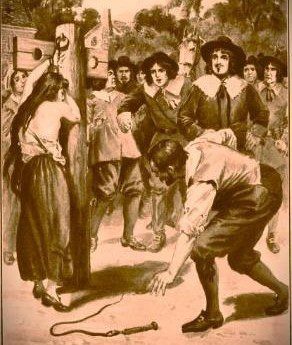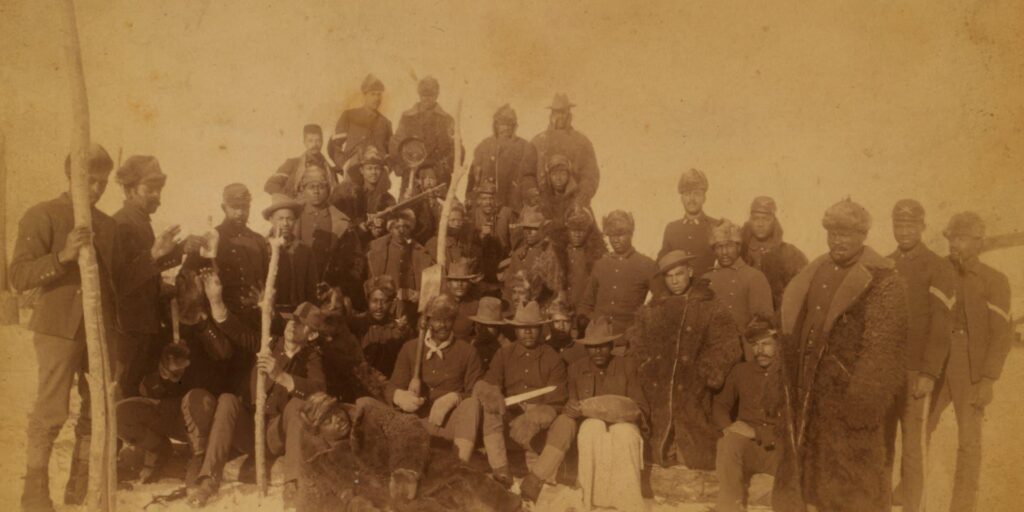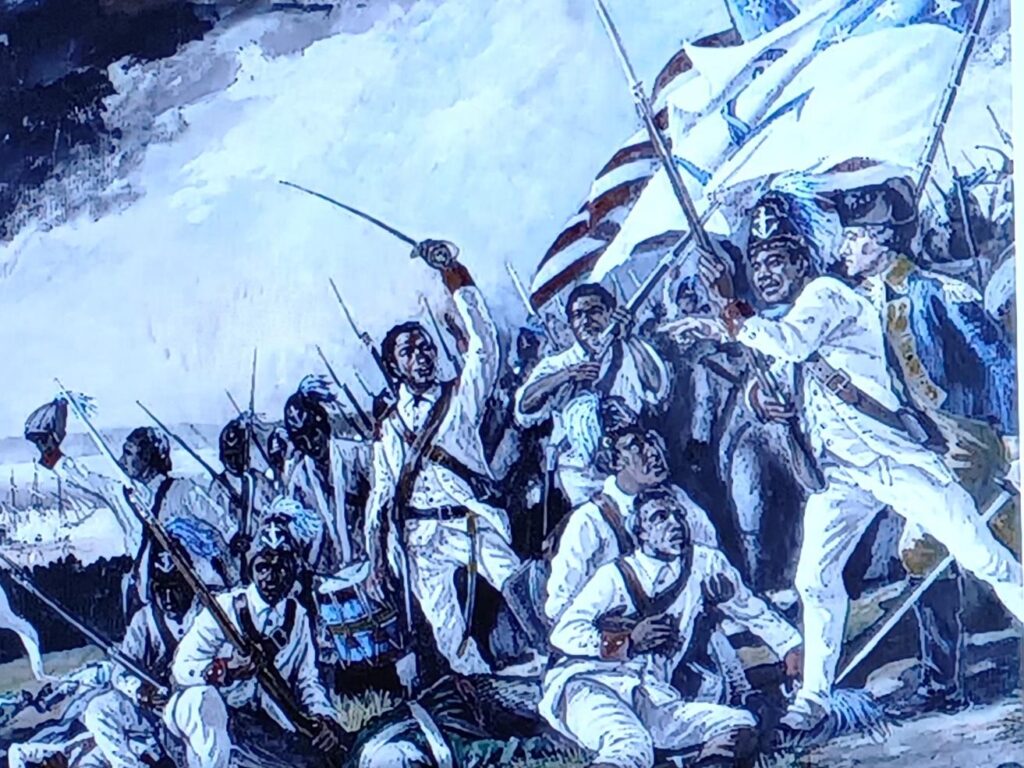“Yiya,” William Thomas Butler, and wife, Vivian Alice Murphy, their family lines endure, stolen, lost but found predated Colonial America. I asked my parents for permission in 1959 to remove the silent letter from my name and change the spelling and pronunciation to “Tomas.” They said, “It’s your decision, Yours, no others.”

Yiya’s fifteenth-generation grandmother, Jane Webb (ca 1682–1764), considered by feminist historians to be one of the three founding pillars of American feminism, stood at the joint whipping post in Northampton County, Colonial Virginia, in 1726. She represented herself, a free, mixed-race woman of about forty-three years of age, who had run afoul of the local magistrate after a setback in a bitter and protracted lawsuit against Thomas Savage, a middling white planter and slaver. She would stand for herself in her case against Savage and win before the Virginia Supreme Court.
Following Reconstruction, Yiya’s great-grandfather was the largest single owner of shoreline property surrounding Lake Waccamaw, North Carolina’s largest freshwater lake, the largest on the entire eastern coast of the United States. Nonetheless, he would be unable to stop the racially motivated violence against his family instigated by the authorities in the theft of his land. The first Depression of 1920-21 began with questionable stock market trading and investment. America lost ten percent of its invested wealth overnight, triggering further losses and creating a climate of instability and uncertainty about the nation’s future. There was a national economic collapse, followed by a recession from 1923 to 1927 and the Great Depression from 1929 to 1933. The resulting economic decline persisted well beyond the 1940s.
Although every family in America had to confront the harsh realities of the Great Depression, families and individuals of color carried the burden of racism. The nation’s consumption expenditures and commodity demand plummeted, and commodity prices skyrocketed, leading to a nationwide collapse in farming. Historically, banks denied loans to farmers of color, worsening their financial instability and collapse, and the imploding farm products market worsened food shortages across the country. Due to such inequities, farms belonging to families of color across the nation crumbled, unable to recover from the ongoing decline. Things got so bad in Columbus County, NC, that his mother wrote a letter to Franklin D. Roosevelt, the President of the United States, asking for his help for all the people near starvation in Columbus County, N.C. President Roosevelt, in response, sent a box train loaded with food and supplies, which was distributed free to everyone in need in the county.
Regardless of the raging, unabated great depression, whites continued to wantonly kill Black and Indigenous people in North Carolina and across America for having something a white person wanted. Even as a child, he had to be keenly aware of his surroundings. White kids would throw heavy stones from passing school bus windows, intending to bash their heads in. Half a century later, he would return to North Carolina, buying land that, as a child, he said: “No nigger would ever be able to own.”
In 1941, to help save the family farm, Yiya left Winston Salem State College and took a job at a plant in town. As the talk of the military draft spread, one morning, the plant manager offered him a draft deferment. The next day, January 5, 1943, at age twenty-one, preferring the risks and uncertainties of war to selling his soul, he enlisted in the US Army. He did not diminish himself, and he sent more money home. He added his name to the extensive list of family members who, over centuries and generations, from colonial times to this very day, served bravely, the goal always being freedom for their people and their families. The Army assigned Yiya to the 3965TH Quarter Master Company as SQUAD LEADER. Operating behind enemy lines, his mission was to rendezvous advanced units and deliver ammunition, food, water, medical supplies, and intelligence vital to fighting forces.
SERVING IN THEATERS:
NORMANDY: The simultaneous landing of U.S., British, and Canadian forces on five beachheads. By the end of August, all of northern France was liberated, and the invading forces reorganized for the drive into Germany, where they would eventually meet with Soviet forces advancing from the east to bring an end to the Nazi Reich.
NORTHERN FRANCE: American troops bogged down in the Norman hedgerows, massive, square earth walls five feet high and topped with hedges. The Germans had turned these embankments into narrow channel fortresses topped with antitank weapons and machine guns, reducing the American advance into slow-progress static warfare in the narrow channels.
ARDENNES: More than 4,000 square miles of primordial hills and ridges with few roads, densely forested, dissected by streams and rivers. Western Europe’s last ancient wilderness. U.S. forward units were surprised and cut off by the massive attack of some 200,000 German infantry in motion. The Allied front line extended west from northern France to northwestern Belgium. English-speaking German commandos wearing US combat jackets and driving captured US jeeps were infiltrating behind US and Allied lines, creating confusion in the rear.
RHINELAND: The planned Rhine crossing near Wesel, on the northern part of the Rhine, was the largest amphibious and airborne operation mounted since D-Day. Two airborne divisions, one British and one American, landed on the east bank of the Rhine the following day to bolster the river assault.
CENTRAL EUROPE: As U.S. troops swept through central Europe, they began crushing pockets of resistance as the German army surrendered. The mission became freeing the concentration camp prisoners and repatriating them, ending the war in Europe.
SERVICE MEDALS AWARDED:
AMERICAN THEATER CAMPAIGN MEDAL—President Franklin D. Roosevelt authorized it on November 6th, 1942. This significant medal symbolizes the recipients’ dedication and sacrifice for distinguished service between December 7th, 1941, and March 2nd, 1946. Each recipient has a unique story of bravery and service.
EAMET CAMPAIGN MEDAL– Issued by President Franklin D. Roosevelt. The medal recognizes those military service members who had performed military duty in the European Theater (including North Africa and the Middle East) during the years of the Second World War.
5 BRONZE SERVICE STARS—Each Bronze Star shows a U.S. service member who has performed heroically and meritoriously, earned for extraordinary action and service in armed conflict.
VICTORY MEDAL WWII—Awarded to members of the United States armed services who served on active duty or as reservists between December 7, 1941, and December 31, 1946.
He said people who experience war are not like those who have not. It is different; you cannot go to bed safely afterward. Hollywood diminishes the impact of war. After watching a documentary, I asked if Eastern European locals aided the Germans in ambushing and capturing Black GIs during the war. It happened, he confirmed.
He said they drove military trucks with camouflage canvas stretched over the truck’s bed. One man drove while the other watched, ready to return fire with a machine gun or rifle. Their missions were to consult with attack squads on missions along and beyond enemy lines, delivering supplies and ammunition. Meeting Germans or local hostiles, each understood, “No prisoners!” Prisoner-of-war camps were where white US soldiers mistreated you as bad or worse than the Germans. Every fight was to the death.

Their missions were to rendezvous with attack units along and behind enemies’ lines. The pressure was relentless, always moments from a fight to the death. Black soldiers would fight to the death rather than be with racist white American soldiers acting no better than the Germans. There were times when gravely wounded fellow white soldiers would refuse their offer to evacuate them to medical help, their response being, “We’re not going nowhere with niggers.” They chose racism over life.
In our very last conversation, I asked Yiya if he was afraid. He sat up, his eyes sweeping the room, and then, looking into my eyes, asked, “Of what, dying?” With that, for the first-ever began recounting his experiences during the Normandy Invasion of World War II.

“The Black troops arrived in England at night. We practiced maneuvers at night and kept indoors during the day to keep our presence secret from German spies. We rehearsed the beach invasion endlessly. On D-Day, We marched into amphibious landing vehicles and jumped into the surf.
There was no cover; the Germans filled the air with bullets, firing from inside bunkers in the hills high above the beach—bullets whizzing from every direction. Men are falling, wounded, and dead all around. Some drowned where they landed, too afraid to stand up. Artillery shells explode, blowing people apart within arm’s reach. It would be best if you moved forward to stand still; you died on the beach. Nowhere to hide; from above, the Germans firing down on us.”
It was not safe for Black men anywhere in North America before World War One (1914-18), after World War Two (1939-45), not after the Korean War (1950-53), or after the Vietnam War (1955-75). In 1933, a white mob, in broad daylight, pulled his grandfather’s son out of a car and lynched him in their hometown of Lake Waccamaw, NC. No arrest, no prosecution. And again, in 1949, in the same town, in broad daylight, another of his grandfather’s sons was unjustly put to death by a white mob. He had just arrived home from the war by train. He returned from Europe wearing his military uniform with medals for Valor and Bravery, awarded at the front in the Northern European Theater of War. There were no arrests, no prosecutions.


For Black men in North Carolina, nowhere was safe from the white mob. Yiya’s parents urged him to take his family to New York City, where they could be safer. He began his career working on the New York waterfront, first as a security guard, then as a blacksmith helper, dock worker, winch operator, and labor organizer, and finally, the first Black strategic commercial port supervisor on the entire eastern coast of the United States.

Yiya owned and ran multiple businesses: groceries, restaurants, bakeries, real estate, and rising through the Longshoremen’s Union. He could have afforded to live elsewhere but likely felt it more beneficial to live within his community (Something I would understand better decades later.)

At age ten in 1960, I was sitting beside the jukebox in my parents’ diner, putting nickels in the jukebox, and listening over and over to Ray Charles sing “Georgia On My Mind.” I fell in love with Georgia, thinking she must be so beautiful. It would be decades before I could accept that the song was not about the woman but a place and our people.
Decades ago, Yiya was waiting for a haircut in the barbershop next door to the diner, where all the war vets spent time telling war stories. Knowing he owned a big, shiny new car, the owner asked a favor of him. Would he pick up a new minister arriving at New York’s LaGuardia Airport the next day? Doing so, he met a pleasant, cheerful, smiling man named Malcolm X at the airport.

Yiya, in 1959, converted his family to Islam. He would stand by Malcolm X through the turbulent years ending with his assassination. Before those times, Minister Malcolm tutored the young sons of members. Every Saturday, there were long, although engaging, and fascinating lectures on religion, history, political theory, and modern events. Ironically, among us, we would be the only person ever convicted and sentenced for Malcolm X’s murder. Several of his lectures were presented live before audiences at some of the world’s leading academic institutions, such as Harvard, Yale, Cambridge universities, and other essential and influential universities found online today.
As a kid, I would make a beeline every Sunday morning via subway train from Brooklyn to Harlem to be the first to volunteer to work at the mosque’s shoeshine stand. This annoyed the older brothers, who wanted tips. My single aim was to talk with Minister Malcolm one-on-one. He regularly stopped to have his shoes polished before his sermons. Finding me waiting, smiling yet again, he would laugh. Knowing I wanted to ask him probing questions would remind me not to slow down but to address as many as time allowed.
Yiya was a man of considerable physical stature with an articulate and observant personality. Wherever he went, the projects, the stores, to speak with people in Washington, DC, or North Carolina, they would extend their hand and greet him with a smile and pleasant hello. Everyone seemed to know and respect him. Even the neighborhood bad guys showed him deference. I once asked him if the Mafia, who controlled all the most essential American ports, knew he was a member of the Nation of Islam. He said yes. They knew everything about everyone, but it was their interest that everything went smoothly. His detractors had informed the Mafia bosses of his affiliations. Keeping the nation’s vital maritime ports open and running smoothly is simply in their best interest. They did not care he was a member of the Nation of Islam. No one else, black, white, or otherwise, was more qualified than he.
In 1974, a photo of Maynard Jackson, Atlanta’s first Black mayor, on the cover of Ebony Magazine caught my eye. It helped convince me to move to Atlanta, GA, and I wanted to be nearer to my parents, who had retired from North Carolina. Arriving in Atlanta, I had compiled a list of influential people I intended to meet. Mayor Jackson was the first of the notable people on my list. I had been present when Mayor Jackson told the true story of his grandfather, John Wesley Dobbs, who, in the summer of 1915, was an unassuming building elevator operator working on the north side of Atlanta.
Frantic word had reached John Wesley Dobbs one faithful day, an urgent message: a race massacre was underway in the center of downtown Atlanta and near to where his family and home were. Unarmed Black men, women, and children were pulled from street trollies in broad daylight and killed by a bloodthirsty white mob, and the situation was ongoing. He left his job at once, taking a circuitous route to avoid detection; he reached his home and family just ahead of the white mob and prepared to take as many of them to the grave with him and his family as he could. The further details were a harrowing story, a lesson for the ages.
John Wesley Dobbs would live to become one of Georgia’s wealthiest businesspeople and one of the most influential African Americans of the first half of the American twentieth century. He became a man of great conviction who never let his grandson, Atlanta’s first Black mayor, forget the lessons learned from 1915. Yiya, too, was a man of conviction who would tell his sons, “Fear my anger above anyone else’s. Defend yourself or fight me!” This was one of many essential lessons we learned and carried internally everywhere. He was making my brother and me incapable of taking an ass whipping from anyone.
In our last conversation, I asked if he was afraid of dying. He looked around the room, then said, “There is no fear.” He said, “I talked with your mother up until the very moment she passed away. She was afraid, but I got her to relax and let go. I told her who would be waiting to greet her and promised I would finish what I needed. With that, she relaxed and let go after a moment.


Now, I will keep my promise.” Taking my hand, he looked into my eyes and said, “Go home and be with your family. Your sisters will be here; everything will be all right.”
Driving back to Atlanta, I kept thinking about how I had let my father talk me into going like I was still a kid. Everything would not be all right ever again without them. My sisters kept vigil and said he would wake periodically, not open his eyes, listen, hear sound, he would shrug, annoyed at still being, until eventually, he quietly passed away.

His burial was in North Carolina, at the family cemetery with our mother and brother, across from where they lived near Lake Waccamaw. A uniformed military guard played taps and fired a rifle salute as his casket lowered into the ground. I saw the military honor guard tearing up and thought, “They would not have understood the man he was.”
My father, his men, and his comrades had a profound sense of pride, fellowship, and duty. They were prepared to make the ultimate sacrifice. “How does one confront fear?” I asked. He said, “By living moment to moment until the fighting ends.”


Yiya was a man of complex personality. He was talkative, humble, observant, and selfless. He gave himself to others but would not be trifled with. He was at ease talking with people of all types, ethnicities, and races. He treated everyone respectfully everywhere he went, in or outside our community.













BLACK TROOPS IN REVOLUTIONARY ARMY 1776:
Our ancestors fought every war on and off this continent, not for slogans or illusions but to ensure their people’s freedom.
With every war, survivors, wounded, extended families, and caregivers all suffer, injured or not, something terrible and debilitating. Something as ancient as war itself: Post-Traumatic Stress Disorder (PTSD).
###
